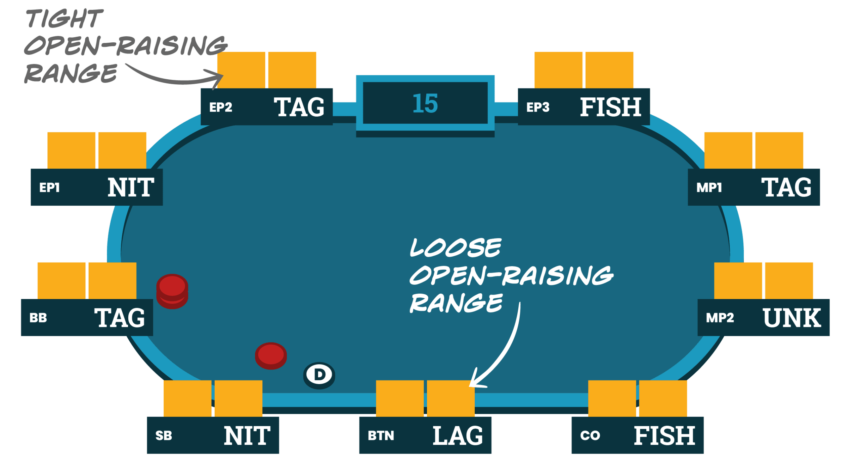invariably lends itself to a discussion of mega-money poker tournaments like the WPT (World Poker Tour), World Series of Poker (WSOP) Main Event, the Australia New Zealand Poker Tour (ANZPT), The Brazilian Poker Tour (PPT), and other major poker tournaments. It’s not simply these tournaments per se; it’s the main events of these tourneys – the showdowns where epic pots are up for grabs.
As we barrel into this exciting domain, we must understand what to expect as we present the facts. For this, we ask your permission to pause to show you how to play poker, courtesy of the world’s leading social poker gaming engine. With your proverbial ducks in a row, you can confidently barrel ahead into extended play sessions. A solid grounding in poker rules makes it much easier to understand the most famous poker hands ever played.
The rapid rise of online games has taken the world by storm. Many Gen Zers have yet to check out the meteoric victory stories of yesteryear, so let’s get to it – let’s roll!
Table of the Most Famous Poker Hands
| Famous Poker Hands | Hand | Highlights | Player Highlight |
|---|---|---|---|
| Cooler City Quads | Full House bested by Quads | 2017 WSOP Main Event | Vanessa Selbst’s loss to Gail Baumann’s quads, ending in a brutal bad beat. |
| Moneymaker’s KO | Ace-Queen | Historic 2003 WSOP Main Event | Chris Moneymaker sparked the poker boom, proving amateurs can compete against pros. |
| Dead Man’s Hand | Aces and Eights | Murder of Wild Bill Hickok | The infamous Aces and Eights hand that became legendary in poker lore after Hickok’s demise. |
| The Doyle Brunson | 10-2 | 1976 and 1977 WSOP Main Event Wins | Brunson’s back-to-back wins with 10-2 have forever branded this hand with his name. |
| Phil Hellmuth’s Nines | Pocket Nines | 1989 WSOP Main Event Win | Youngest Main Event winner at 24, sparking Hellmuth’s legendary WSOP career. |
| Johnny Chan Trap | J♣9♣ | 1988 WSOP Main Event | Chan’s trap play inspired the iconic poker movie Rounders. |
| Aces Take Down Aces | Pocket Aces | 2014 WSOP Big One for One Drop | Cary Katz’s Ace-high flush edged out Connor Drinan’s Aces in an epic cooler. |
The takeaways from these monstrous poker hands are extraordinary. To get the complete picture, we must explore each hand’s merits. These iconic hands offer a window into poker’s phenomenal teaching lessons. Poker is a skill, wit, strategy, and good fortune game. The latter component is critical, but the more skilled you are, the luckier you get. Consider Doyle Brunson’s back-to-back World Series of Poker (WSOP) Main Event victories. His unlikely 10-2 combination was legendary.
But it was Chris Moneymaker who set the poker world ablaze with his Ace-Queen hand at the historic 2003 World Series of Poker Main Event. Moneymaker was a veritable nobody from nowhere, and he went on to win the most fantastic prize in all of poker – the WSOP Main Event. His victory was the forerunner for the meteoric surge in online poker games. It has never been the same since. We learn from each of these hands that unconventional plays, astute timing, and an understanding of your opponents are sacrosanct.
Poker is inherently unpredictable – despite your level of expertise. There are too many variables to go into any poker game with absolute certainty. The cards are randomly shuffled and drawn. The players are unpredictable or unknown specially in virtual poker rooms with players from all over the world. Lady Luck may or may not visit you. Plus, players need to be on their A-game at all times. It’s no mean feat performing to expectations with increasing alacrity. All the forces need to be aligned for these poker hands to work. Only then do they become famous poker hands.
Each one of these hands teaches us something incredible. Resilience in the face of defeat is the most important lesson. Consider Vanessa Selbst, who squared off against Gail Baumann – Selbst was holding pocket Aces versus quads for Baumann. And then there’s the case of Connor Drinnan, who was unlucky despite holding pocket Aces. This shows that you can still lose a poker game even when the odds are stacked in your favor. Poker is a game of managed expectations. You can never be too cavalier, because it’s not just about the cards you’re playing – it’s about other players at your table.
Managing your emotions is one of the most important lessons you can learn in poker. When you play poker, work hard to prevent feelings of joy or depression from impacting your game. These emotions can cloud your judgment and cause you to make incredibly costly decisions. Learn from your mistakes, learn to recognise your strengths and weaknesses. Play to your strengths, and work around your weaknesses. Poker requires constant attention to detail, tactics, strategies, and good fortune. And when all is said and done be humble in victory and gracious in defeat!


